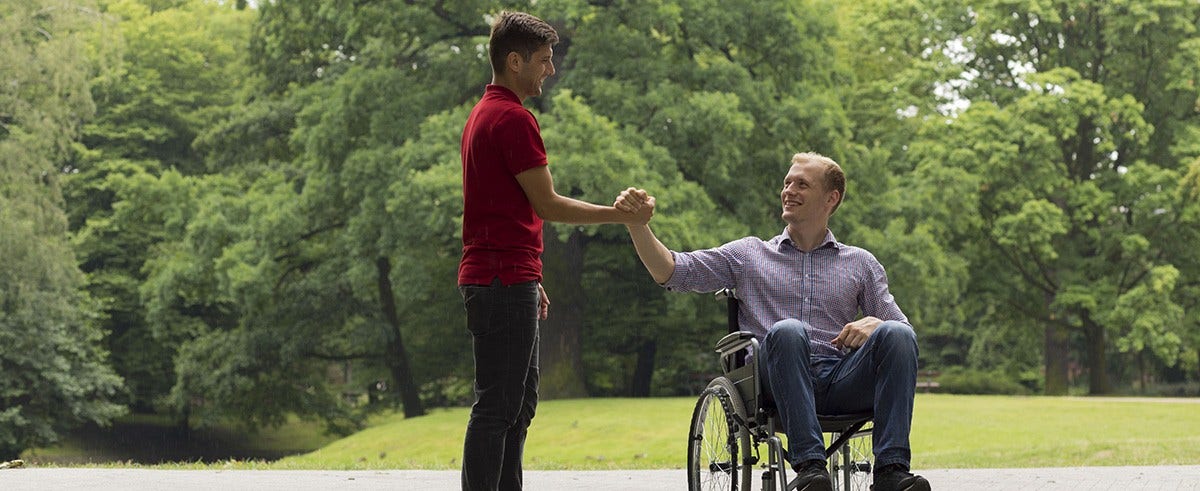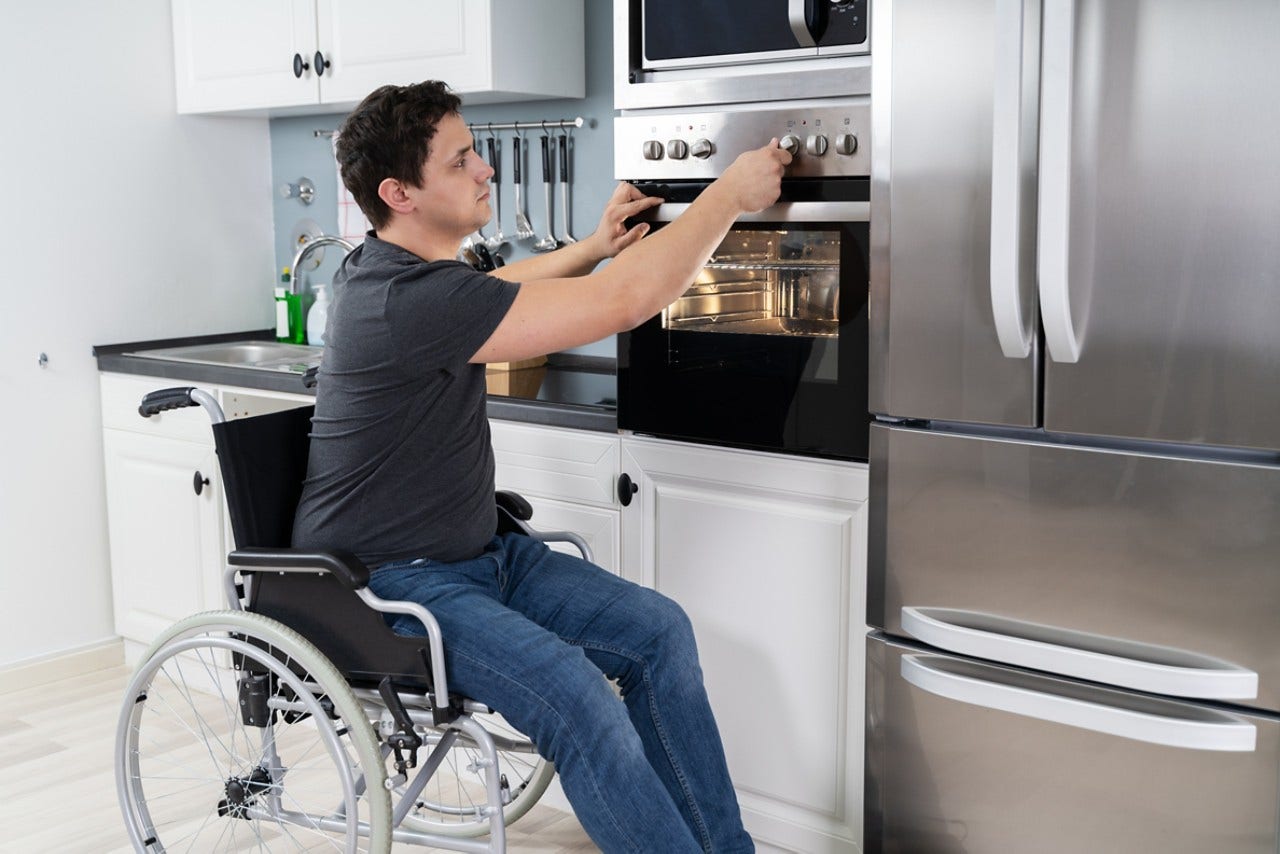
How to Help Someone with a Mobility Impairment
Mobility impairments and limitations are the most common type of disability in the U.S. Affecting 1 in 7 people nationwide, friends, family, and caregivers of disabled people may wonder what they can do to help those with mobility impairments. If someone you know has a mobility impairment or disability, follow this guide to find helpful ways to support disabled people in your life.
What Is Considered a Mobility Impairment?
The CDC defines a mobility impairment as a condition that causes difficulty walking or climbing stairs. This definition is rather limited. People with mobility impairments can struggle with a variety of daily tasks that may come easily to those without disabilities. From getting dressed, to cleaning the house, prepping meals, or even taking care of personal hygiene, people with mobility impairments may need assistance to get through day-to-day life. Luckily, resources are available to help foster independence for those with mobility disabilities.
What Resources Are Available to Help Individuals with Disabilities?
Whether a disabled person needs transportation, a weekly errand run, or significant medical care, a variety of resources are available to meet a wide range of needs.
- Home Health Aides: Sometimes referred to as a personal care assistant (PCA), home health aides assist individuals with tasks like bathing, dressing, prepping meals, administering medication, and completing household chores.
- Custom mobility aids: People with mobility impairments may benefit from the use of custom mobility aids like wheelchairs, walkers, canes, crutches, or braces. Custom mobility aids can typically be purchased through a durable medical equipment company and are often covered by insurance.
- Home Modifications: Some individuals with mobility disabilities may require home modifications to live independently. Whether you’re looking to create a wheelchair accessible kitchen, an accessible bathroom, or a wheelchair-friendly entryway, our guide to creating a handicap accessible home is full of tips to make your home wheelchair accessible.
- Transportation: Disabled individuals and their caregivers may use wheelchair accessible vehicles. These vehicles can be fitted with ramps, wheelchair restraints, and hand controls to meet the transportation needs of those with disabilities. Your local mobility dealer can help you find a handicap van to fit your needs. Resources are also available to disabled individuals who cannot drive, including services like Uber, Lyft, public transport, or non-emergency medical transportation.
- Meal prep and meal delivery: For those who need assistance with prepping meals, services like Shipt or Hello Fresh may be ideal.
- Find a support group: Finding a local support group can help combat the mental health toll that a disability may take on individuals and their caregivers. To find a local support group, visit a local hospital or disability advocacy group in your area.
- Consult a medical professional: Those living with mobility disabilities may benefit from medical intervention. Medical professionals like physical therapists or physical medicine and rehab specialists can help find treatment plans that fit your needs.
How Can Caregivers Play a Role?
Caregivers can play a significant role in supporting those with mobility disabilities, especially children, who may not be old enough to advocate for their needs. Researching and connecting with local medical professionals and support groups can allow caregivers to help disabled individuals live independent and fulfilling lives.
How Do You Provide Relief and Assist People with Disabilities?
Assisting a person with a disability can look different depending on a person’s relationship to a disabled individual and the individual’s needs. Sometimes, providing relief to disabled individuals can be simple. Maybe you pick up a medication at the pharmacy, cook a meal, or provide transportation to a disabled person. If you’re the family member or caregiver of a disabled individual, you may help with daily tasks like dressing or bathing.
Do’s and Don'ts of Assisting a Person with a Disability
If you are unsure how to help a disabled individual, ask. Most people with disabilities can explain how you can best help them. Be sure to follow basic disability etiquette when assisting people with disabilities. Talk directly to the disabled individual, use appropriate language, and do not touch a mobility aid without permission.
Looking for more ways to help a disabled individual in your life? Visit our caregiver resources page, and check out our other articles on accessible living and disability rights.




